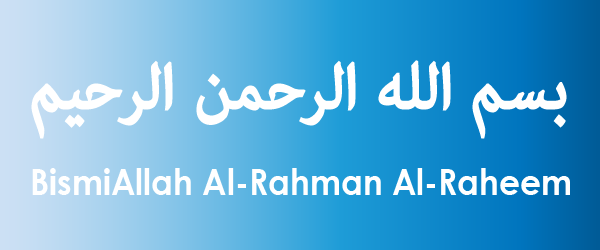
Welcome to IslamBase101.com, your comprehensive guide to exploring the Islamic faith. Whether you’re a beginner curious about Islam or a Muslim seeking to deepen your understanding, this resource offers a thorough overview of the core tenets, practices, and history of Islam. In a world where understanding different cultures and religions is more critical than ever, we aim to provide accurate and accessible information about Islam. We encourage you to engage with the information below. If you find IslamBase101.com beneficial, please share it with others, as the Prophet Muhammad (PBUH) said, “Whoever guides someone to goodness will have a reward like one who did it” (Sahih Muslim).
1. The Foundation of Belief: Tawhid (Oneness of God)
The cornerstone of Islam is Tawhid, the absolute belief in the oneness of God (Allah). Muslims believe that Allah is the sole Creator, Sustainer, and Judge of the universe, without any partners or equals. This profound belief shapes every aspect of a Muslim’s life, fostering a sense of purpose, gratitude, and reliance on God. It emphasizes that all creation is ultimately from and belongs to Allah.
This belief in one God is not just a theological concept; it has practical implications. It encourages Muslims to worship only Allah, to seek His help, and to strive to live according to His will. It also promotes a sense of equality, as all humans are considered equal in the eyes of God, regardless of race, ethnicity, or social status.
2. The Pillars of Practice: The Five Pillars of Islam
The Five Pillars of Islam are the fundamental practices that all Muslims are expected to observe. They serve as the framework for Muslim life and demonstrate a Muslim’s commitment to their faith.
- Shahada (Declaration of Faith): The declaration that there is no god worthy of worship except Allah and that Muhammad is His messenger. This is the foundation of Islam and the entry point into the faith.
- Salah (Prayer): Five daily prayers performed at specific times, facing the Kaaba in Mecca. These prayers involve specific movements, recitations, and supplications, serving as a direct connection between the individual and God.
- Zakat (Charity): Giving a portion of one’s wealth to the needy. Zakat is not simply charity; it is a mandatory act of worship that purifies wealth and supports the community. It highlights the importance of social responsibility and economic justice.
- Sawm (Fasting): Abstaining from food, drink, and sexual activity from dawn until sunset during the month of Ramadan. Fasting cultivates self-discipline, empathy, and spiritual reflection. It allows Muslims to experience hunger and thirst, fostering compassion for those less fortunate.
- Hajj (Pilgrimage): A pilgrimage to Mecca, which is obligatory for those who are physically and financially able. Hajj is a journey of spiritual renewal and commemorates the sacrifices of Prophet Abraham (AS). It symbolizes the unity of the Muslim community.
3. The Divine Guidance: The Quran and Sunnah
The Quran is the holy book of Islam, believed to be the literal word of God revealed to Prophet Muhammad (PBUH). It is the primary source of guidance for Muslims, containing divine commandments, stories of the prophets, and moral teachings. Muslims believe the Quran is the final and most perfect revelation from God.
The Sunnah refers to the teachings, practices, and sayings of Prophet Muhammad (PBUH). It is considered the second most important source of guidance for Muslims, after the Quran. The Sunnah provides practical examples of how to live according to Islamic principles, demonstrating the Prophet’s (PBUH) exemplary character and conduct.
4. Islamic Law (Sharia): A Comprehensive Way of Life
Sharia, often misunderstood, is the body of Islamic law derived from the Quran and Sunnah. It provides guidance on various aspects of life, including worship, ethics, family matters, business dealings, and social interactions. It’s important to note that interpretations of Sharia can vary among different Islamic schools of thought, reflecting the diversity of Islamic scholarship. Sharia aims to guide Muslims toward a life of balance and righteousness.
5. Islamic Ethics and Morality: Cultivating Virtues
Islam places a strong emphasis on ethics and morality. Muslims are encouraged to cultivate virtues such as honesty, compassion, generosity, justice, and humility. The Quran and Sunnah provide numerous examples of ethical behavior and emphasize the importance of treating others with kindness and respect, regardless of their faith or background. Islam promotes a holistic approach to life, where moral and spiritual development are just as important as material well-being.
6. The Global Muslim Community: Diversity and Unity
Islam is a global faith practiced by people from diverse ethnic and cultural backgrounds. While all Muslims share the same core beliefs and practices, there is a rich diversity in how Islam is expressed in different parts of the world. This diversity is a testament to the universality of Islam and its ability to adapt to different cultural contexts while maintaining its core principles. Despite this diversity, Muslims worldwide are united by their shared faith and their commitment to the Quran and Sunnah.
This overview offers a foundational understanding of the key aspects of All about Islam. It is a faith that emphasizes the oneness of God, the importance of righteous living, and the pursuit of knowledge. We encourage you to continue exploring IslamBase101.com to further deepen your understanding of this global faith. Remember, learning about different cultures and religions is essential for building bridges of understanding and promoting peace in our interconnected world.





Leave a Reply